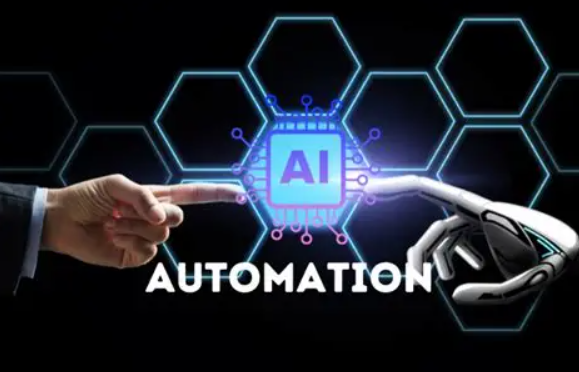Artificial intelligence (AI) is transforming the way businesses operate, from automating routine tasks to enabling intelligent decision-making and predictive analytics. But as powerful as AI automation can be, not every organization is prepared to implement it effectively. The question isn’t just whether your business can use AI—but whether your business is ready for AI automation.
In this article, we’ll explore what AI automation really means for businesses, why readiness matters, and how to assess whether your organization is prepared to adopt AI-driven solutions. We’ll also cover the key benefits, challenges, and steps you can take to prepare your business for AI implementation and successful digital transformation.
What Is AI Automation in Business?
AI automation is the combination of artificial intelligence and automated systems to perform tasks with minimal human intervention. Unlike traditional automation, which follows pre-programmed instructions, AI-enabled systems learn from data, adapt over time, and make autonomous decisions.
Examples include:
-Chatbots providing customer service 24/7
-AI tools analyzing big data for business insights
-Robotic Process Automation (RPA) with AI handling invoices, contracts, or HR tasks
-Predictive maintenance in manufacturing using machine learning
-Personalized marketing campaigns based on AI-driven behavior analysis
AI automation can boost efficiency, reduce costs, improve accuracy, and enable faster decision-making. But the benefits are only realized if your business is ready for the transition.
Why Business Readiness for AI Matters
Adopting AI in business is not just a technical upgrade—it’s a strategic shift. Businesses must align their people, processes, and infrastructure with the demands of AI systems. Without the right foundation, AI projects can fail to deliver value, exceed budgets, or even pose security risks.
In short, AI implementation readiness determines whether your business can reap the full benefits of automation or struggle through costly trial-and-error.
Key Signs Your Business Is Ready for AI Automation
Here are key indicators that your business may be ready to embrace AI automation:
1. You Have a Digital Infrastructure in Place
If your organization already relies on cloud computing, data analytics, and digital workflows, you’re in a good position to add AI layers. Legacy systems that don’t integrate with modern platforms can hold back automation efforts.
2. Your Teams Are Open to Change
AI adoption often requires shifting how employees work. If your workforce is adaptable, digitally literate, and open to learning new tools, that’s a strong signal of organizational readiness for AI.
3. You Have Quality Data
AI thrives on data. If your business collects structured and unstructured data—and ensures it’s clean, accurate, and secure—you’re better prepared to train and deploy AI systems.
4. There’s a Clear Use Case
Businesses ready for AI know why they want to automate. Whether it’s improving customer service, reducing operational costs, or enhancing product recommendations, clear goals guide successful AI strategies.
5. Leadership Supports Digital Transformation
C-suite commitment is essential. If leadership understands the potential of AI automation in business and invests in it strategically, your chances of long-term success increase significantly.
Common Barriers to AI Automation
If your business isn’t quite ready yet, you’re not alone. Here are the most common challenges businesses face:
Lack of in-house expertise: AI requires skills in data science, machine learning, and automation platforms. Many businesses lack this talent.
Unstructured or siloed data: Inaccessible or poor-quality data can hinder AI model training.
Cultural resistance: Fear of job displacement or unfamiliar technology can cause pushback from employees.
Unclear ROI: Some businesses struggle to quantify the value of AI projects, making it harder to secure investment.
Fortunately, these obstacles can be addressed with proper planning and investment.
Steps to Prepare Your Business for AI Automation
If you’re aiming to become an AI-ready business, here are the key steps to take:
1. Audit Your Current Processes
Identify repetitive, time-consuming tasks that could benefit from automation. Start with small, low-risk areas like data entry, email responses, or inventory tracking before scaling up.
2. Invest in Data Governance
Ensure your data is accurate, accessible, and compliant with regulations. Consider building a centralized data warehouse and appointing data stewards.
3. Upskill Your Workforce
Prepare your team for the AI era by investing in training programs, certifications, and workshops. Employees don’t need to be data scientists, but they should understand how AI works and how to collaborate with it.
4. Choose the Right AI Tools
Start with tools that align with your goals. There are plenty of user-friendly, plug-and-play AI platforms for sales, marketing, customer service, and operations that don’t require coding skills.
Examples include:
-Zapier AI for workflow automation
-ChatGPT or Dialogflow for chatbots
-HubSpot or Salesforce Einstein for sales and CRM automation
-UiPath for RPA solutions
5. Start Small and Scale Smart
Begin with a pilot project. Measure its impact, learn from the results, and gradually expand AI automation to other departments. This reduces risk while building internal support and confidence.
The Competitive Advantage of AI-Ready Businesses
Businesses that successfully embrace AI automation gain a significant edge over competitors. They can:
-Respond to market trends faster
-Deliver superior customer experiences
-Make data-driven decisions in real time
-Innovate more rapidly
-Reduce costs and boost productivity
In a world where digital transformation is no longer optional, AI readiness is becoming a critical benchmark of long-term business resilience.
Final Thoughts
So, is your business ready for AI automation?
Preparing for artificial intelligence in business goes beyond buying new software. It’s about developing the right mindset, systems, and strategy to leverage automation effectively. Whether you’re a small business owner or managing enterprise-level operations, now is the time to assess your digital maturity and plan for an AI-driven future.
As AI technologies continue to evolve, early adopters will be in the best position to innovate, grow, and lead their industries. Don’t wait until you’re forced to catch up—start preparing today.

